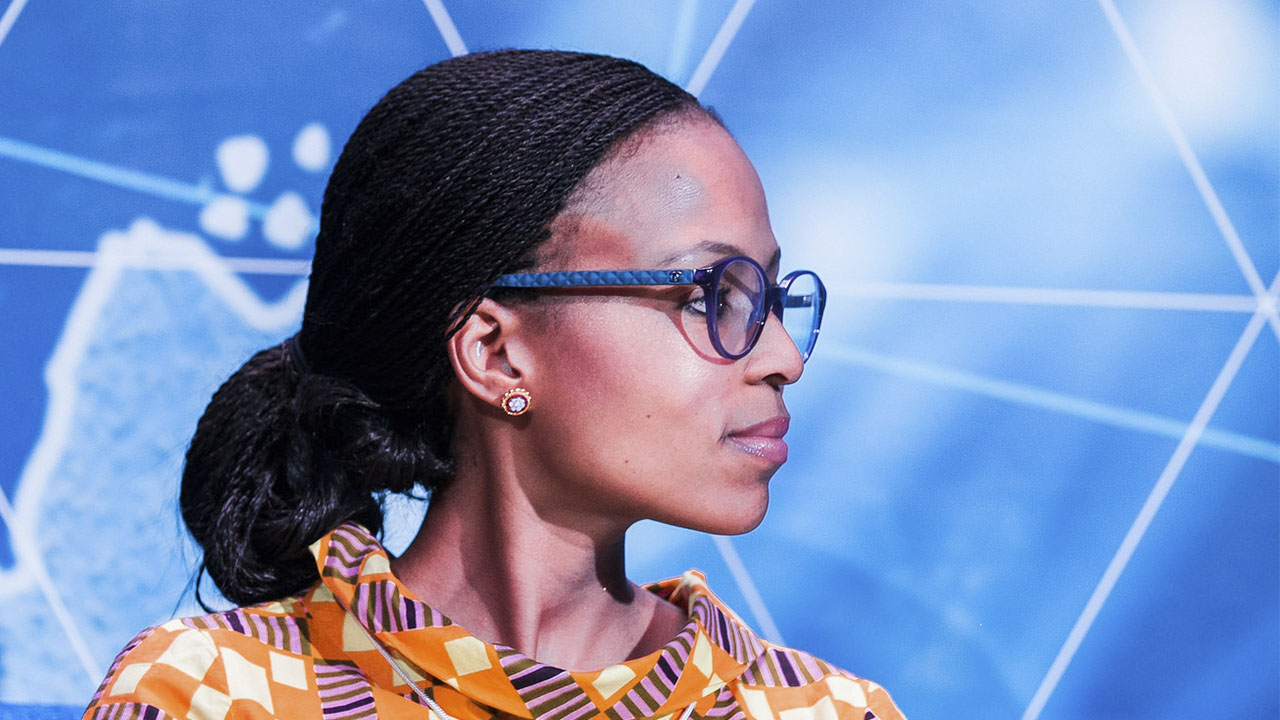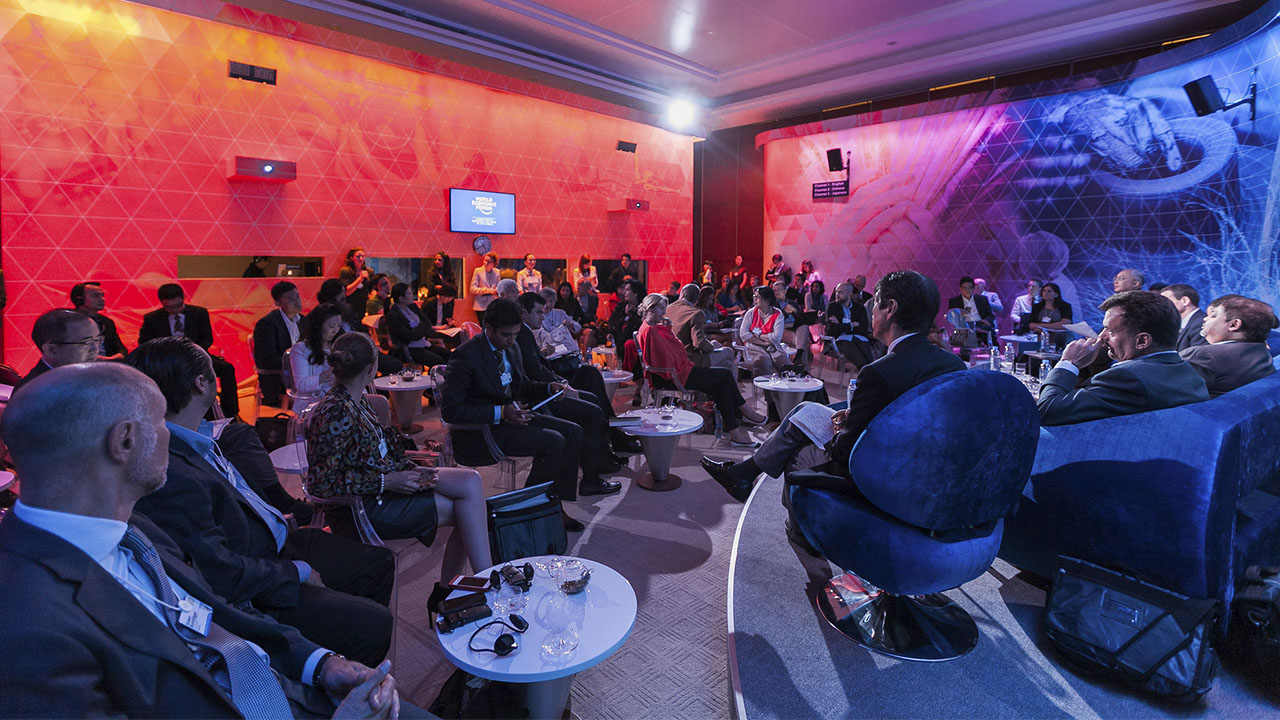Matsi Modise
For an entrepreneur and entrepreneurship activist in South Africa, the opportunities that you seek are the opportunities that set you apart. In order to ensure that your opportunities are not lost and that they can materialize, you need to be in the right place and at the right time, with the right calibre and quality of people. The World Economic Forum (WEF) has never failed to be that platform for me.
My journey with the Forum started in 2013 when I was inducted as a Global Shaper, becoming part of a network of hubs around the world developed and led by young people who are exceptional in their potential, their achievements and their drive to make a contribution to their communities. Being part of this network has opened the door to the rest of the world. If I am trying to conduct business in a country that I am not familiar with, there is always a Global Shaper, Young Global Leader or someone from the Forum that is able to facilitate the necessary introductions — and possibly be a strategic partner with me to ensure ease of doing business in that area.

A good example of this is when I was doing a project for a corporate client in Rwanda last year. Because of the vast networks and professional relationships I have been able to garner from the WEF over the years, my company was able to execute the project with much more ease and agility. One of my previous hats was running the South African Black Entrepreneurship Forum (Sabef), an organisation committed to growing entrepreneurship and growing ecosystems in rural, peri-urban and remote parts of the country. In September 2014, I was invited to attend the WEF Annual Meeting of New Champions in Tianjin, China, and at that conference I was awarded a prize by Professor Klaus Schwab (founder of the WEF) for my contribution to entrepreneurship development in South Africa’s underserved communities. This meant that I was able to promote the work that is being done around developing entrepreneurship in South Africa, and talk about the challenges that we experience — and how we are trying to overcome them as a nation. In January 2016, I was also among the 50 Global Shapers selected to attend the annual WEF meeting in Davos, Switzerland.
Davos is the Oscars of the business world. International business and political leaders gather there to focus on global politics, economics, and social issues. You walk around the corridors and bump into and rub shoulders with business and political icons that you have always admired. You have an opportunity to talk to the likes of Bill Gates, Christine Lagarde, Justine Trudeau and many others, and market your brand and the work you do. At last year’s Davos meeting I was one of the panelists to discuss The 21st Century Dream with former global chief executive of Coca Cola Muhtar Kent, Will.i.am from the Black Eyed Peas and one of the co-founders of Airbnb, Nathan Blecharczyk. It would not have been possible for a young black woman like me from a small town in the Free State to be able to achieve all of the above — and have my voice and opinions heard in front of a global audience of respective leaders — if I was not part of this global community. This has tremendously bolstered financial and other support for the civic organisations I run, as well as for my personal business.
This year’s regional WEF on Africa conference hosted in Durban was unique. For the first time in a decade, the forum hosted a Solutions Summit, on the wings of the main meeting. This was a gathering of more than 200 members of the Forum’s Schwab Foundation for Social Entrepreneurship, Young Global Leaders and Global Shaper communities to discuss ways to scale their impact. It was an opportunity to share insights of what leaders within the forum are doing to empower their own communities and how this can be shared and possibly scaled to different parts of the continent. During the main conference I had the opportunity to sit on another panel with Rapelang Rabana , founder of Rekindle Learning, Bright Simons from Mpedigree and Ciiru Waithaka, founder of Fun Kidz in Kenya. The theme of the panel was Africa’s Unicorn Effect, and we discussed what it is required to nurture a pipeline of high-impact, high-growth African unicorns — private companies valued at over $1-billion. I currently run an organisation called Simodisa, a private sector led industry association, pursuing a research, policy design and stakeholder engagement programme to catalyze and amplify entrepreneurship and job creation in South Africa. This was a great platform to promote the work that we do in supporting those ideas that will be future African unicorns.

Many of the conversations were insightful, and the one that I thoroughly enjoyed was the one-on-one conversation with our new minister of finance Malusi Gigaba. He spoke about radical economic transformation in South Africa, and participants had the opportunity to interrogate what that means and what kind of leadership it would require for us as a nation to achieve that.
The common and unfortunate rhetoric around the WEF is that it is the world’s biggest and most exclusive talk shop. Many people believe that it is all talk and no action. Perhaps this is correct for those who are not inside. The WEF is what you make out of it. It provides you with a great platform to showcase your business, promote your brand, develop your thoughts, and build business networks that could be beneficial. WEF can give you a voice at the table, but what is important is what you do with that voice. It is a whole week that you are taking out of your working diary, so at the end of it all it is important that you do not walk away without closing a business deal.
Matsi Modise is the managing director of Simodisa, an industry association whose mission is to accelerate entrepreneurship by collaborating with policymakers to enhance the success rate of high-impact, high-growth entrepreneurs